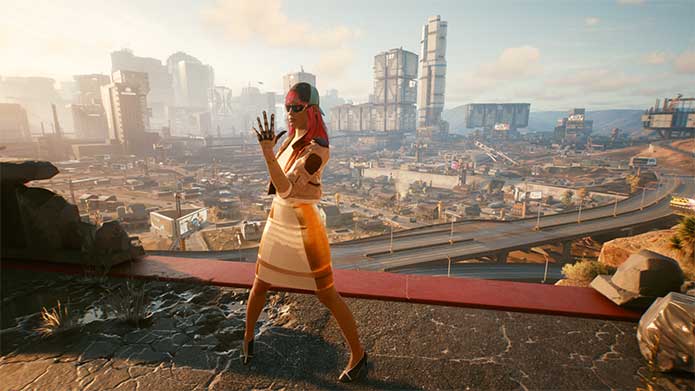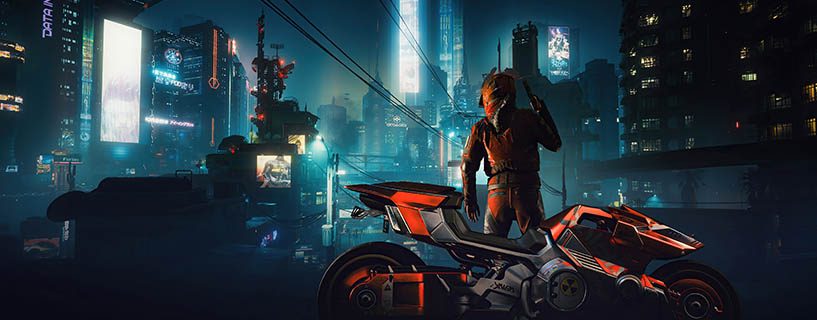It’s weird watching a game climb out of the dumpster. Cyberpunk 2077 was once a cautionary tale, like ordering a $50 steak and finding it still mooing. But with patches, updates and now Phantom Liberty it’s had a redemption arc so big it’ll make even the most jaded corpo mercenary cry. And now the question is: what’s next for Cyberpunk 2077? A sequel? An expansion? A future so high-tech even the bugs have AI personalities?
One thing is for sure—Night City isn’t done with us yet.
A City That Feels More Alive (Without the Scripted Pedestrians)
 For all the neon, Night City has always had that open-world problem: it feels big and yet rigid. Yes, the streets are busy but the people are just mannequins in nice clothes who speak in pre-recorded loops. You could set off a grenade in a crowd and half of them would flinch and then forget anything happened. The next iteration of Cyberpunk or maybe a second Phantom Liberty-sized expansion has to make the world feel more alive.
For all the neon, Night City has always had that open-world problem: it feels big and yet rigid. Yes, the streets are busy but the people are just mannequins in nice clothes who speak in pre-recorded loops. You could set off a grenade in a crowd and half of them would flinch and then forget anything happened. The next iteration of Cyberpunk or maybe a second Phantom Liberty-sized expansion has to make the world feel more alive.
A more reactive population would be a start. NPCs who remember previous encounters, who recall when you ran over their friend with a stolen Arasaka motorbike, who have relationships (or grudges) with the player. The foundations of this exist in Cyberpunk 2077 already but they are mostly cosmetic. It’s time for real cause and effect—where your actions leave actual scars on the city.
Quantum AI and The Next Evolution of Cyberpunk’s Systems
There’s been a lot of talk lately about Quantum AI—the next step in computing that promises decision-making so complex it makes the best NPC dialogue trees look like a children’s pop-up book. We’re not quite at the point where your digital bartender can develop existential dread over his programmed existence but the idea of smarter more adaptive AI in future Cyberpunk games is exciting.
An enemy faction that doesn’t just spawn infinite but actually learns from you. A fixer who doesn’t just give you quests but adjusts their jobs based on what you’ve done before. A game where every playthrough doesn’t just feel different but is different, not just because of scripted events but because of systems that are, in a way, thinking for themselves. Cyberpunk could very well be the one that does this—because if there’s one thing it needs it’s a city that pushes back.
Beyond the City Limits
 For all its sprawl, Cyberpunk 2077 is oddly landlocked. Beyond the Badlands—a great place for a moody existential drive—there’s a whole world out there that’s unexplored. The game hints at international intrigue, at factions beyond the city limits but we never see them. A sequel or a big expansion could take us beyond Night City itself.
For all its sprawl, Cyberpunk 2077 is oddly landlocked. Beyond the Badlands—a great place for a moody existential drive—there’s a whole world out there that’s unexplored. The game hints at international intrigue, at factions beyond the city limits but we never see them. A sequel or a big expansion could take us beyond Night City itself.
Imagine a job goes south and suddenly you’re on a smuggler’s route to old Europe or navigating the corporate cities of Asia where the tech is even shinier and the consequences are more severe. Cyberpunk has always hinted at a global dystopia—why not show us what’s beyond the nearest NCPD checkpoint?
A Player Economy That Actually Means Something
Money in Cyberpunk 2077 is weird. You start the game as poor as a rat, begging for credits just to afford an apartment that isn’t covered in suspicious stains. By the end, you’re swimming in eddies with nothing to spend them on. This is a classic RPG problem—currencies that matter in the early game but become meaningless once you’ve reached the top.
A sequel should add more ways to interact with the economy—buying businesses, investing in tech startups, even influencing stock markets (rigging them if you’re feeling corporate). Imagine buying a failing nightclub in Japantown and using your underworld connections to turn it into the hottest spot in Night City. A player driven economy would add a layer of long term strategy beyond just hoarding credits for fancy jackets.
Hacking That’s Actually Hacking
 For a game about a dystopian digital future, hacking in Cyberpunk 2077 is just staring at green numbers and hoping for the best. It works mechanically but does it really feel like cybernetic espionage? A deeper, more interactive hacking system—one that makes you feel like you’re actually infiltrating corporate networks rather than playing a glorified match-the-numbers puzzle would be great.
For a game about a dystopian digital future, hacking in Cyberpunk 2077 is just staring at green numbers and hoping for the best. It works mechanically but does it really feel like cybernetic espionage? A deeper, more interactive hacking system—one that makes you feel like you’re actually infiltrating corporate networks rather than playing a glorified match-the-numbers puzzle would be great.
What if hacking was real time? A full cyberspace infiltration where you aren’t just brute forcing a firewall but navigating a shifting digital landscape filled with evolving security and rival netrunners. Make it feel tactile, make it dangerous, make it something only a true cyberpunk legend could do.
More Meaningful Choices (and Less Illusion of Choice)
CD Projekt Red is great at storytelling but one of the common complaints about Cyberpunk 2077 was that for all the grand dialogue trees many choices led to the same outcome. Yes you could choose different paths but the road signs all pointed to the same destination.
A sequel must go further—true branching narratives where your choices create drastically different versions of Night City. A city that changes, characters that live (or don’t) because of your choices, factions that rise or fall because of your actions. Not just small flavor changes but big changes in how the world works. If you betray a major fixer their entire empire should crumble or conversely come back to haunt you in ways you never expected.
The Future Is There for the Taking
Cyberpunk 2077 has already done something amazing. It went from a disaster to a good game. But there’s so much more to do. Whether it’s a sequel, a big expansion or an evolution of the mechanics, Cyberpunk can push the boundaries of what gaming can do. That’s what keeps it at the forefront of the industry, a major player in a competitive game.
The world is there. The stories are there. The tech is catching up. Now it’s just a question of how far CD Projekt Red will take it. And if they get it right the next Cyberpunk won’t just be a great game—it’ll be the ultimate vision of our neon-soaked, morally bankrupt future.


 by Symphonie
by Symphonie